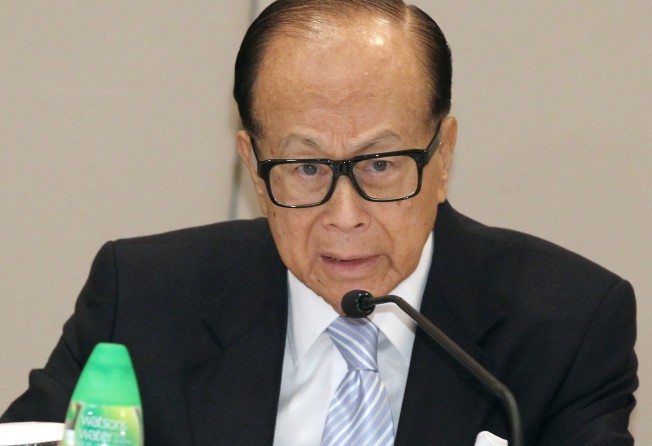
Tycoons not the boss anymore as Beijing calls the shots
Mainland grooming own crop of patriotic business leaders in Hong Kong as party paper continues bashing of ‘superman’

"Mainlanders now tend to see Li Ka-shing as a 'profit comes first' businessman, rather than 'a role model who loves the country and Hong Kong'."
Global Times, September 30
When a Communist Party mouthpiece says that in its editorial, the message can't be any clearer. Li is no longer considered a "patriotic businessman" by Beijing.
Anybody with some knowledge of Xi Jinping’s leadership wouldn’t be surprised. This is an administration that talks politics, not money. It’s no longer donation to universities or charities that make a businessman “patriotic”, but obedience of Beijing’s orders – at all costs.
This is an administration that is determined to make Hong Kong Beijing-led instead of tycoon-led – or Li-led for that matter – as it has been the case in the past two decades. For the new rulers in Beijing, businessmen are there to serve, not lead.
While some of his peers have yielded to Beijing’s orders and publicly apologised to Chief Executive Leung Chun-ying for criticising him in the run-up to his election, the 86-year-old tycoon did not. The backlash was a matter of time. The corporate restructuring making Li’s empire a Cayman Island entity was the last straw.
Thanks to the two-week long media bashing of the “superman” on the mainland, every tycoon in town should by now know who the boss is and how to behave. Beijing is, however, not allowing them much time to turn “patriotic”. It is not taking any chances, grooming its own crop of patriotic tycoons in Hong Kong.
The land sale scene in Hong Kong since Xi took power is a telling pointer. Mainland developers have resurfaced as a key player after disappearing since 1997.
On Tuesday, Shimao Property Holdings outbid its local rivals for a plot in Shek Kip Mei with a HK$7 billion offer. That was less than two weeks after state-owned Poly Property Group won a residential site in Tuen Mun for HK$1.7 billion – both record-high figures.
Since 2012, newcomers from the north have grabbed land worth at least HK$33 billion, a near fivefold jump in four years.
Whether it is because of a dull home market or an active follow-the-client strategy, the reality is that it wouldn’t have happened without a policy change in Beijing.
An Urban Renewal Authority source recalled how a senior government official rejected a proposal to partner mainland developers during the 2003 economic downturn when local developers shied away. “His reason being, it’s against state policy to allow them here.”
Thanks to that unwritten bar, Li and his peers have enjoyed 15 years of unchallenged oligopoly, in which time they have developed unrivalled financial and political dominance. Now, the balance of power is shifting to their disadvantage.
A more subtle change is happening elsewhere. In July, Leung inaugurated the Listed Companies Council set up with 35 mainland companies. The council, which comes under the state-run Hong Kong Chinese Enterprises Association, pledges to participate in policy formulation for the stock market to “protect members’ interests”.
It mirrors the Chamber of Hong Kong Listed Companies, the traditional bastion of local tycoons, in particular Li. His lieutenant, veteran investment banker Francis Leung Pak-to, is its chairman.
Li’s tight grip on listing matters and appointments is no secret, having single-handedly derailed policy changes many a time. The Beijing-dominated council will not hesitate to share that power.
In the meantime, an increasing number of government appointments are going to the so-called “new loyalists”.
Their wealth is not even a fraction of the established tycoons’. Yet, they have spent millions of dollars for firework displays and to hold galas on National Day; formed coalitions against the Occupy Movement last year; and trumpeted the “one belt, one road” policy in the media.
Rather than Li, the largest port owner in the greater China region, they dominate various committees on transport and trade.
None of these should come as a surprise to Li. He has been there. Hong Kong tycoons once took over the reins of the city’s economy from the British. It’s somebody else’s turn now.